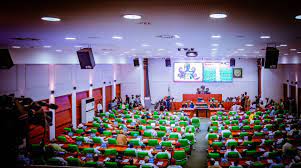
The Nigerian Petroleum Company Limited (NNPCL) has attributed the recent fuel queues in various parts of the country to disruptions caused by a recent thunderstorm, which has affected the ship-to-ship (STS) transfer of Premium Motor Spirit (PMS), commonly known as petrol. This information was disclosed in a statement by the company’s Chief Corporate Communications Officer, Olufemi Soneye, on Monday.
The adverse weather conditions have significantly impacted the berthing of vessels at jetties, truck load-outs, and the transportation of fuel to filling stations, leading to widespread logistical challenges in station supply. The clarification from NNPCL comes in response to reports of long fuel queues in Lagos, Abuja, and other regions, which have led to a spike in fuel prices, with some areas reporting prices as high as ₦900 per litre.
According to reports, private depot owners have increased the ex-depot price of petrol from ₦630 to ₦720 per litre. Addressing these developments, Soneye emphasized the challenges posed by the flammability of petroleum products and the need to comply with the Nigerian Meteorological Agency (NIMET) regulations, which prevent the loading of petrol during rainstorms and lightning.
“The NNPC Ltd wishes to state that the fuel queues seen in the FCT and some parts of the country, were as a result of disruption of ship-to-ship (STS) transfer of Premium Motor Spirit (PMS), also known as petrol, between Mother Vessels and Daughter Vessels resulting from a recent thunderstorm,” Soneye explained.
He further elaborated that the severe weather conditions have also resulted in flooding of truck routes, further complicating the movement of PMS from the coastal areas to the Federal Capital Territory, Abuja. This flooding has constrained the logistics and supply chain, exacerbating the fuel scarcity.
NNPCL assured that it is collaborating with relevant stakeholders to address these logistical challenges and restore a seamless supply of petrol to the affected areas. The company reported that loading operations have resumed in regions where the adverse conditions have eased and expressed optimism that the situation will continue to improve, with full normalcy expected to be restored soon.
In light of these developments, NNPCL has urged motorists to refrain from panic buying and hoarding of petroleum products, assuring the public that efforts are underway to resolve the issues and ensure a steady supply of fuel across the country.





